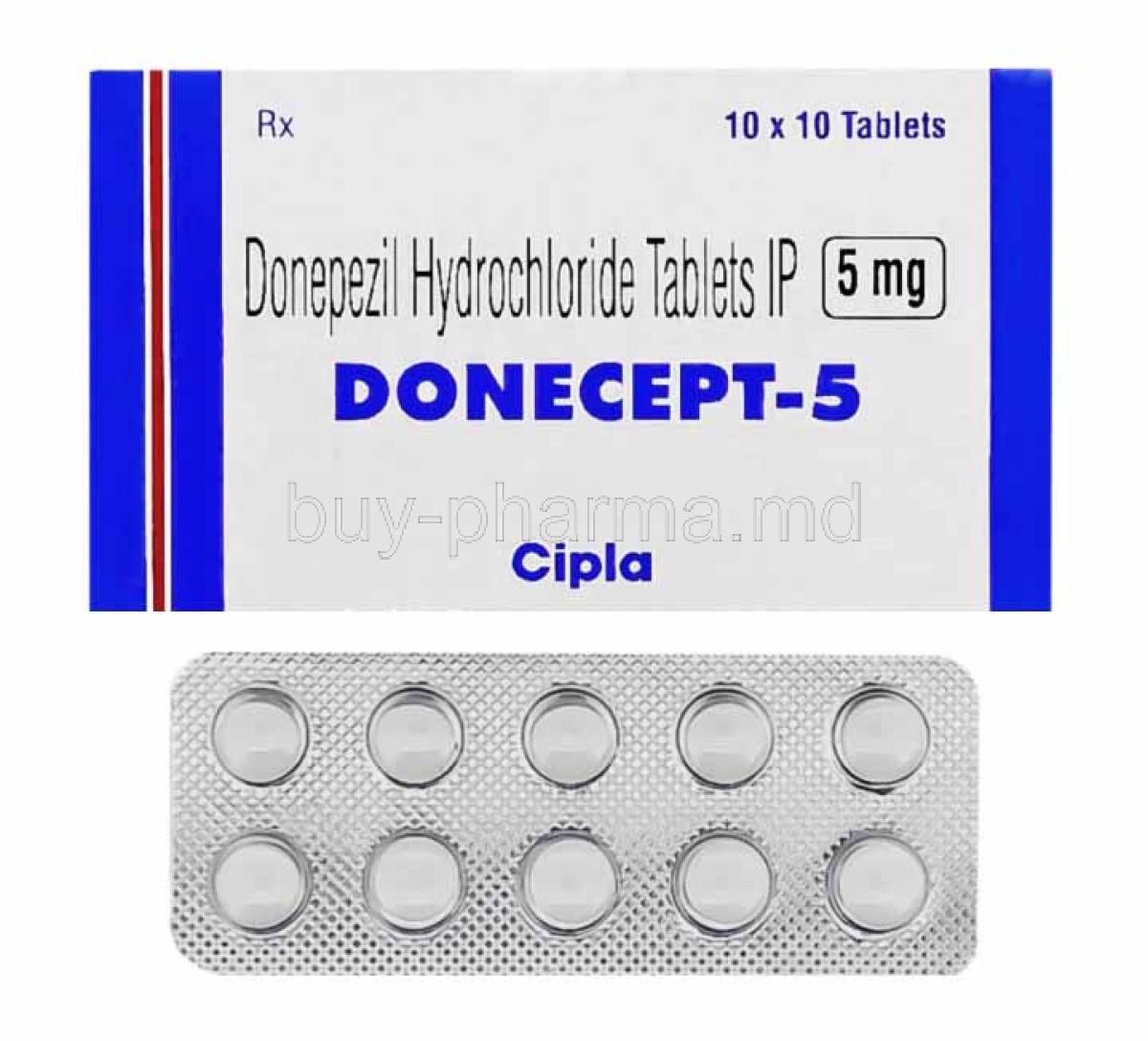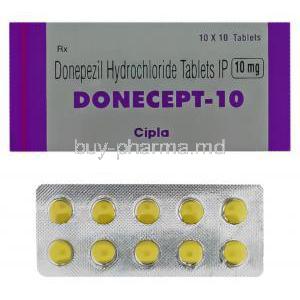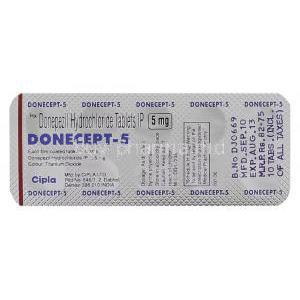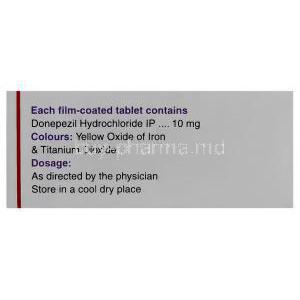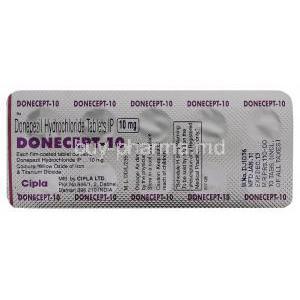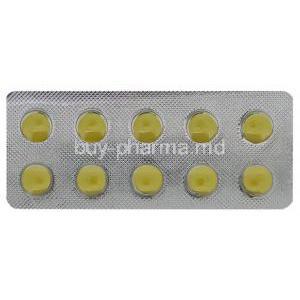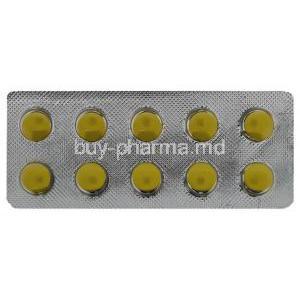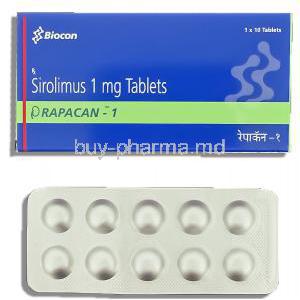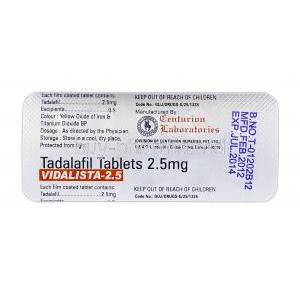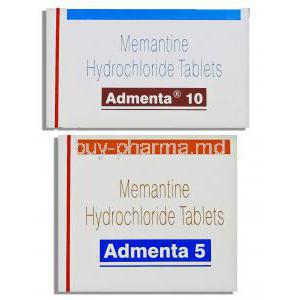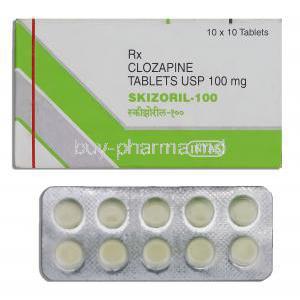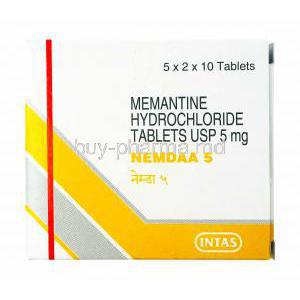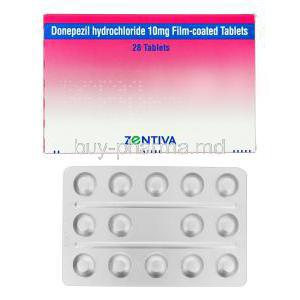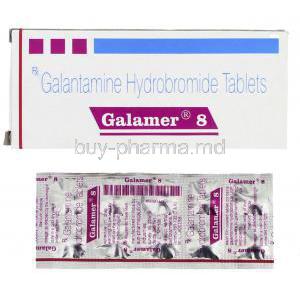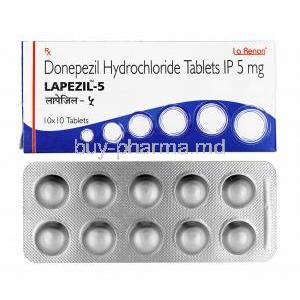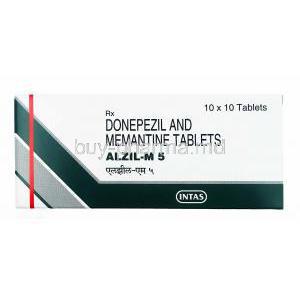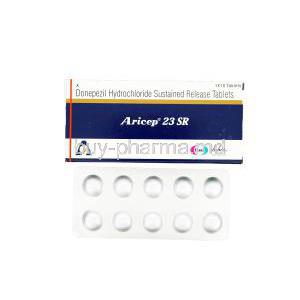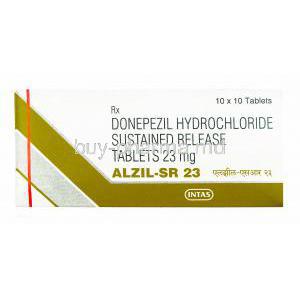Introduction
Overview of Donecept (brand of Donepezil)
Donecept, a brand formulation of donepezil, is a well-established pharmacological agent designed to address the progressive deterioration of memory and cognition seen in dementia-related conditions. It belongs to the therapeutic class of cognitive enhancers and remains one of the most widely prescribed medications for patients with Alzheimer’s disease. By modulating neurotransmitter activity, Donecept aims to restore balance in the brain’s cholinergic system, thereby improving functional and cognitive performance.
Therapeutic classification as a cholinesterase inhibitor
Donepezil is classified as a cholinesterase inhibitor. This group of medications prevents the breakdown of acetylcholine, a neurotransmitter vital for learning and memory. By sustaining acetylcholine activity, Donecept supports communication between nerve cells and compensates for the cholinergic deficits characteristic of Alzheimer’s disease and related dementias.
Historical background and approval for clinical use
Donepezil was first synthesized in the late 20th century and rapidly gained recognition due to its selective action on central nervous system acetylcholinesterase. Regulatory approval followed in the 1990s, and since then, the medication has become integral in dementia care worldwide. Its long-standing presence in therapeutic practice reflects consistent clinical efficacy and an established safety profile.
Composition and Formulation
Active ingredient: Donepezil hydrochloride
The pharmacological activity of Donecept derives from its active compound, donepezil hydrochloride. This molecule is specifically tailored to inhibit acetylcholinesterase within the central nervous system, prolonging acetylcholine availability.
Available strengths and dosage forms (tablets, orally disintegrating tablets)
Donecept is marketed in a range of convenient formulations to meet patient needs. These include standard film-coated tablets as well as orally disintegrating tablets, which dissolve on the tongue and eliminate the requirement for water intake—particularly beneficial for individuals with swallowing difficulties.
Inactive ingredients and excipients
In addition to the active component, Donecept contains excipients such as lactose monohydrate, magnesium stearate, cellulose derivatives, and coloring agents. These substances provide structural stability, palatability, and controlled disintegration of the dosage form.
Mechanism of Action: How Donepezil Works
Inhibition of acetylcholinesterase enzyme
Donepezil exerts its therapeutic effect by selectively binding to and inhibiting acetylcholinesterase, the enzyme responsible for degrading acetylcholine. This inhibition leads to an accumulation of acetylcholine in synaptic clefts.
Enhancement of acetylcholine levels in the brain
By increasing the concentration of acetylcholine, Donecept augments cholinergic neurotransmission. This enhancement supports cognitive processes such as learning, reasoning, and recall, which are often impaired in neurodegenerative disorders.
Impact on memory, cognition, and functional abilities
Patients receiving Donecept frequently exhibit improvements in memory retention, daily functioning, and overall mental clarity. Although it does not halt the progression of neurodegenerative diseases, it can significantly delay symptom exacerbation and maintain quality of life.
Differences from other cholinesterase inhibitors
Compared to rivastigmine and galantamine, Donepezil demonstrates a high degree of selectivity for central acetylcholinesterase, with minimal peripheral cholinergic effects. This pharmacological distinction often translates to improved tolerability and once-daily dosing convenience.
Medical Uses of Donecept
Primary indication: Alzheimer’s disease (mild, moderate, severe stages)
Donecept is primarily indicated for symptomatic treatment of Alzheimer’s disease across all stages—mild, moderate, and severe. It alleviates memory loss, disorientation, and challenges in performing everyday activities.
Vascular dementia management
Patients with dementia resulting from cerebrovascular pathology may benefit from Donecept, as it can enhance cognitive performance and reduce functional decline associated with impaired cerebral blood flow.
Dementia associated with Parkinson’s disease
Donepezil has been employed in managing cognitive decline associated with Parkinson’s disease, supporting attention, executive function, and mental processing speed.
Cognitive decline related to Lewy body dementia
In Lewy body dementia, Donecept may improve fluctuating cognition, alertness, and visual hallucinations, offering symptomatic relief in complex neurodegenerative syndromes.
Off-Label Uses of Donepezil
Mild cognitive impairment (MCI)
Donepezil has been investigated for patients with mild cognitive impairment, aiming to delay progression to Alzheimer’s disease, although outcomes remain variable.
Traumatic brain injury-related cognitive impairment
Post-traumatic cognitive deficits, including memory lapses and attention difficulties, have been addressed with Donecept in certain clinical studies, reflecting its potential neurocognitive benefits beyond dementia.
Schizophrenia-related cognitive symptoms
Donepezil has been studied as an adjunct therapy in schizophrenia to alleviate cognitive dysfunction, supporting attention and working memory in affected individuals.
Multiple sclerosis-related cognitive decline
In multiple sclerosis, Donecept may provide modest improvements in memory and executive function, complementing disease-modifying treatments.
Sleep apnea and neuropsychiatric disorders (exploratory uses)
Exploratory research has evaluated Donepezil for sleep-disordered breathing and various neuropsychiatric syndromes. Though not standard practice, such studies highlight the expanding scope of cholinesterase inhibitors.
Dosage and Administration
Standard initial and maintenance dosages
The typical starting dose of Donecept is 5 mg once daily, with potential escalation to 10 mg after clinical evaluation. Higher doses may be prescribed under strict monitoring in advanced stages.
Titration schedule and dose adjustments
Dose escalation should be gradual, with adjustments made after at least four to six weeks to ensure tolerance and minimize adverse effects.
Administration timing (once daily, evening dosing)
Donecept is usually administered once daily in the evening before bedtime. This schedule optimizes absorption and reduces the impact of certain side effects such as gastrointestinal upset.
Missed dose management guidelines
If a dose is missed, it should be taken as soon as remembered unless it is nearly time for the next dose. Double dosing is not recommended.
Special considerations for hepatic or renal impairment
Patients with impaired hepatic or renal function require careful dose adjustments and close clinical monitoring due to altered drug metabolism and clearance.
Side Effects of Donepezil
Common Side Effects
- Gastrointestinal disturbances: nausea, diarrhea, and vomiting are frequently reported.
- Insomnia and abnormal dreams: patients may experience vivid or disruptive dreams.
- Muscle cramps and fatigue: these effects are typically transient.
- Headache and dizziness: commonly occur, especially during initiation of therapy.
- Loss of appetite and weight loss: prolonged treatment can sometimes lead to reduced body weight.
Serious Side Effects
- Bradycardia and heart block: clinically significant slowing of the heart rate may occur in predisposed individuals.
- Gastrointestinal bleeding and ulcers: particularly in patients with prior peptic ulcer disease or those using NSAIDs.
- Seizures and syncope: rare but potentially serious neurological complications.
- Severe allergic reactions: angioedema, rash, or anaphylaxis demand immediate medical intervention.
- Extrapyramidal symptoms and tremors: uncommon but documented in certain cases.
Warnings and Precautions
Risks of gastrointestinal bleeding
Donepezil has the potential to increase gastric acid secretion, which may elevate the risk of gastrointestinal bleeding. Individuals with a history of peptic ulcers, gastrointestinal hemorrhage, or concurrent use of NSAIDs and anticoagulants should be monitored closely. Proactive measures such as avoiding alcohol excess and minimizing irritant drugs are advisable.
Caution in patients with cardiac conduction abnormalities
Cholinesterase inhibitors, including Donepezil, may provoke bradycardia or heart block due to their vagotonic action. Patients with sick sinus syndrome, atrioventricular conduction defects, or those receiving beta-blockers should be evaluated with heightened vigilance.
Risk of seizures in predisposed patients
Seizure activity may be triggered in susceptible individuals, particularly in those with a history of epilepsy or conditions that lower the seizure threshold. While rare, clinical monitoring is warranted when therapy is initiated or doses are escalated.
Potential interaction with anesthesia during surgery
Donepezil can enhance the muscle-relaxant effects of certain anesthetic agents. Surgeons and anesthesiologists should be notified prior to operative procedures to adjust anesthetic choice and dosage, ensuring patient safety.
Contraindications
Known hypersensitivity to Donepezil or piperidine derivatives
Patients with a documented allergy to Donepezil or related compounds must not be prescribed the medication, as hypersensitivity reactions may range from skin rashes to life-threatening angioedema.
Severe hepatic impairment (relative contraindication)
Because Donepezil undergoes hepatic metabolism, individuals with severe liver dysfunction face increased exposure and adverse effects. In such cases, alternative treatment options are generally recommended.
Drug Interactions
Interactions with anticholinergic drugs
Anticholinergic medications may counteract the therapeutic benefits of Donepezil, diminishing its cognitive-enhancing effects. This antagonistic interaction should be avoided whenever possible.
Additive effects with other cholinergic agents
When combined with other cholinergic agonists, Donepezil can produce excessive cholinergic stimulation, leading to severe nausea, bradycardia, or muscle cramps. Careful dose management is required if such combinations are unavoidable.
Increased risk with NSAIDs and anticoagulants
The concomitant use of NSAIDs or anticoagulants heightens the likelihood of gastrointestinal bleeding. Monitoring for abdominal pain, melena, or hematemesis is critical in at-risk populations.
CYP450 metabolism and interactions with antifungals, macrolides, SSRIs
Donepezil is metabolized primarily by cytochrome P450 isoenzymes. Potent inhibitors such as ketoconazole, erythromycin, and certain SSRIs may elevate drug concentrations, while enzyme inducers can reduce efficacy. Dose adjustments and therapeutic monitoring may be necessary.
Special Administration Considerations
Administration in Elderly Patients
Elderly individuals represent the primary demographic for Donepezil therapy. Clinical trials confirm safety and efficacy in this group, though cardiovascular monitoring is recommended due to higher prevalence of conduction abnormalities.
Administration in Pregnant Women and Nursing Mothers
- Animal study findings on fetal toxicity: Preclinical studies indicate potential embryotoxic effects, warranting caution.
- Placental transfer and breastfeeding precautions: Evidence suggests that Donepezil crosses the placenta and may be excreted in breast milk, posing risks to the infant.
- Clinical recommendations for use during pregnancy: The medication should be avoided unless benefits clearly outweigh potential harm. Breastfeeding mothers are advised against use during therapy.
Administration in Children
Data on pediatric use is limited. While Donepezil has been explored off-label for certain cognitive disorders in children, its safety and efficacy remain inadequately established. Routine use is not recommended without specialist supervision.
Overdose and Emergency Management
Symptoms of overdose: cholinergic crisis, bradycardia, hypotension
An overdose of Donepezil may precipitate cholinergic crisis, characterized by excessive salivation, sweating, vomiting, bradycardia, hypotension, and respiratory compromise. This clinical scenario requires urgent intervention.
Recommended management and use of atropine
Atropine, a muscarinic antagonist, serves as the antidote of choice. Intravenous administration can rapidly counteract life-threatening bradycardia and hypotension.
Supportive care and monitoring in hospital settings
In addition to pharmacologic reversal, patients require supportive measures such as airway management, oxygen supplementation, and continuous cardiac monitoring until stabilization is achieved.
Handling and Storage Guidelines
Proper storage conditions (temperature, humidity)
Donepezil should be stored at controlled room temperature, away from excessive heat and moisture, to preserve stability and efficacy.
Safe handling precautions for patients and caregivers
Caregivers should ensure tablets are kept out of the reach of children and pets. Orally disintegrating tablets should be handled with dry hands to avoid premature disintegration.
Shelf life and expiration considerations
Expired medication may lose potency and should not be consumed. Patients should routinely check packaging for expiration dates and dispose of outdated products responsibly.
Important Precautions and Careful Administration
Monitoring liver function, heart rate, and weight
Routine clinical monitoring is essential. Liver function tests, cardiovascular assessments, and weight tracking help identify adverse effects early and guide therapeutic adjustments.
Discontinuation strategy and withdrawal effects
Donepezil discontinuation should be gradual to minimize rebound cognitive decline. Abrupt cessation may exacerbate symptoms and disrupt patient stability.
Guidance on long-term therapy and periodic reassessment
As dementia is progressive, long-term therapy should be periodically reassessed. Physicians must weigh the benefits of ongoing cognitive support against emerging risks or declining therapeutic impact.

